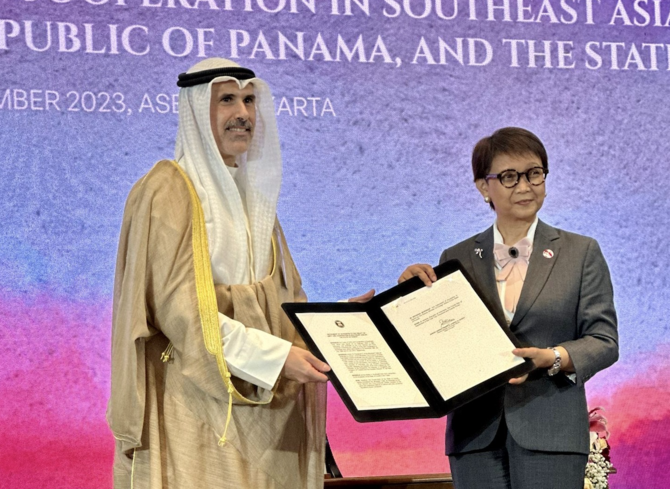BEIRUT: The speaker of the Lebanese parliament, Nabih Berri, failed to attend a scheduled meeting on Wednesday with Prime Minister-designate Nawaf Salam, as the Shiite Amal and Hezbollah blocs refused to participate on day one of non-binding consultations on forming a new government.
The talks will continue until Thursday evening with the aim of gauging the opinions of parliamentary blocs, independent MPs and reformist MPs about the structure and participation in the new government.
The failure of the Shiite blocs to attend was a response to what Hezbollah MP Mohammed Raad described as a “trap” and act of “exclusion,” after a majority of MPs this week voted for Salam as prime minister-designate, rather than the incumbent caretaker PM, Najib Mikati, as Hezbollah had expected.
On the eve of the consultations, both the newly appointed President Joseph Aoun and Salam stressed that “there is no intention to break or exclude any party in the country, but rather to promote unity and partnership.” However, Hezbollah and Amal maintained their positions and refused to participate in the talks.
Adding to the uncertainty, Amal Movement MP Qassem Hashem stated that “not attending the consultations does not mean boycotting the government or the prime minister-designate.” He said the blocs were “taking a political stance, not one directed against the prime minister-designate, as what he said yesterday offers grounds for engagement.”
According to media reports, “communication between Salam and Berri has not ceased, and the period between the conclusion of non-binding parliamentary consultations and the subsequent negotiations on the formation of the government between the parties is expected to determine whether the Amal and Hezbollah blocs will choose to participate in the government.”
On the question of whether the aim of the refusal to participate was to send a message abroad, Berri said: “Lebanon must move forward.”
Independent MP Ibrahim Mneimneh told Arab News: “It is essential today to approach matters with wisdom and to return to communication. No party should feel excluded or perceive any intention to undermine the other, and all must unite in the endeavor of state-building.”
Regarding allusions by Hezbollah to the issue of losing legitimacy, Mneimneh said: “The matter of legitimacy is more of a political issue than a constitutional one. Therefore, when those with concerns are reassured, I believe that matters will proceed normally. This phase is crucial for state building, and it is expected that everyone participates in this process.”
The opening day of the consultations were limited to the parliamentary blocs, which predominantly represent partisan trends.
MP Mark Daou, representing the Change Alliance, said: “Lebanon has entered a new phase. We demanded a smaller government consisting of new faces in which women are represented, far from partisan quotas, with the necessity of playing a major political role, and without mixing the parliament with the ministry, and without returning to the trilogy: army, people, resistance.”
MP Taymour Jumblatt, leader of the Democratic Gathering bloc, said after talks with Salam: “We have an opportunity to build the state of the future. We focused on the necessity of communicating with everyone and opening a dialogue with everyone, as no one can cancel the other. We also hope that political actors will ease the pressure on (President) Joseph Aoun and Nawaf Salam.”
MP Ibrahim Kanaan, representing the Independent Consultative Gathering, said: “The designated prime minister is eager to engage with everyone and cooperate with them. We hope that the Shiite duo (Hezbollah and Amal) will join hands with us.
“In light of our objectives, all obstacles can be overcome and it is crucial to have political will behind those appointed to the government to facilitate and ensure the success of the mandate.
“There is a pressing need for courage, decisive action and implementation, particularly regarding administration, finance and financial accounts.”
MP Sagih Atieh said the National Moderation bloc called for a “ministerial portfolio, the acceleration of the government formation process, and the inclusion of all parties in it.” During the talks, he added, “Salam emphasized the principle of balanced development.”
The head of the Free Patriotic Movement, MP Gebran Bassil, said: “The appointment of Salam is not a defeat for anyone but a victory for the reformist ideology.”
He added that his bloc “has not made any demands regarding the government and is ready to assist, believing that the government should represent parliamentary forces but consist of specialists.”
MP George Adwan, speaking on behalf of the Strong Republic bloc led by the Lebanese Forces party, called for “the government’s plan to align with the speech delivered by the president when he took the oath.”
He added: “We do not wish to return to any previous political formulas, including ‘army, people and resistance.’ The state’s authority must extend over all of its territories, while the era of national consensus governments must come to an end.”
Adwan reiterated his bloc’s calls for “a fight against corruption and for an indictment to be issued in the Beirut port explosion case within the next few months.
“Additionally, we will not accept any plan that would involve writing off depositors’ funds. We also want the negotiations with the International Monetary Fund to be relaunched, while the new government must reflect the proper representation of the Lebanese people.”
MP Tony Frangieh said the Independent National Bloc wants “the formation of a government composed of competent individuals and capable of addressing the current challenges. We did not discuss our participation in the government. Nawaf Salam possesses the wisdom needed to save Lebanon. It is important for all the country’s components to communicate, as the government requires the broadest consensus possible.”
The head of the Lebanese Kataeb Party bloc, MP Sami Gemayel, said he wants a government “composed of competent individuals. We will let President Aoun and Prime Minister-designate Salam decide on the form of the government.”
He added: “What we see today is far from exclusionary and I wish we had not been excluded in the past.”



























